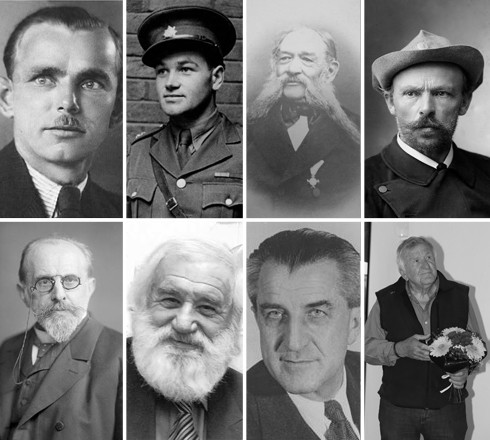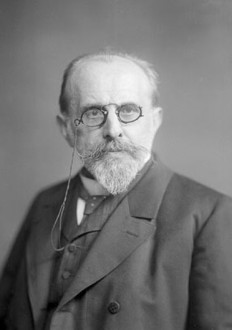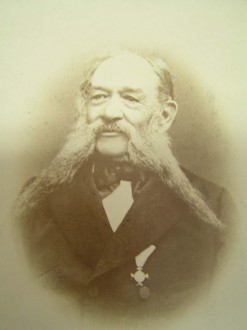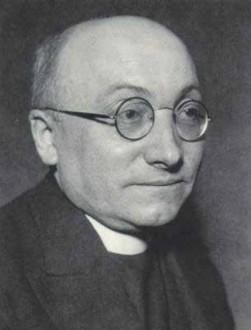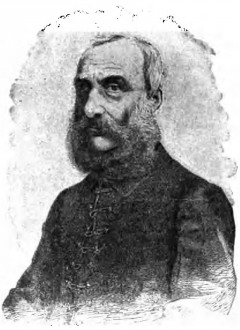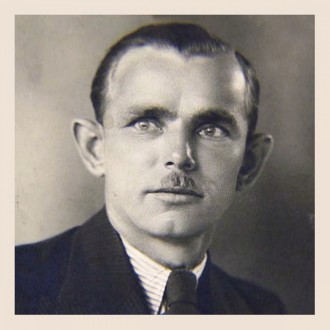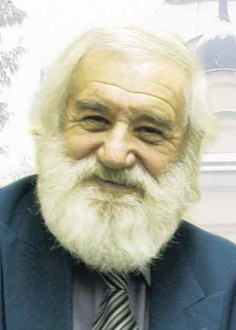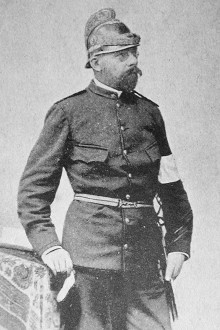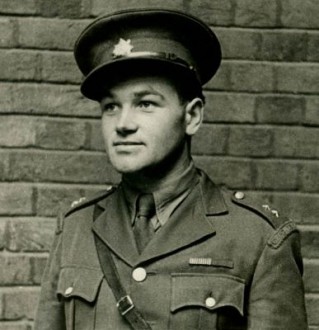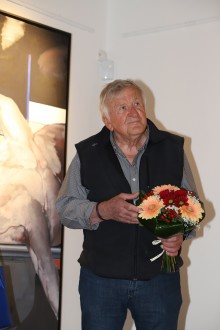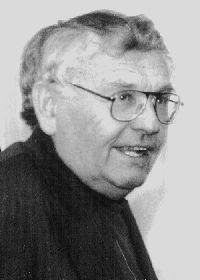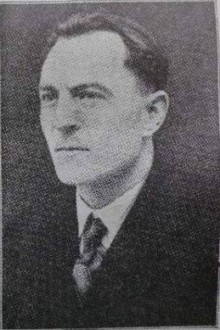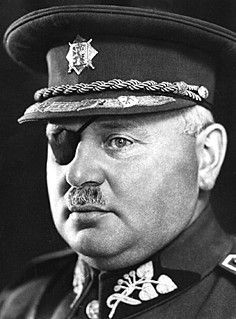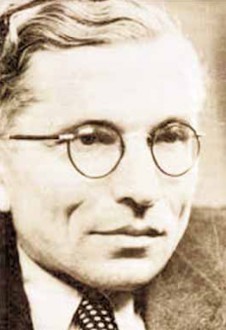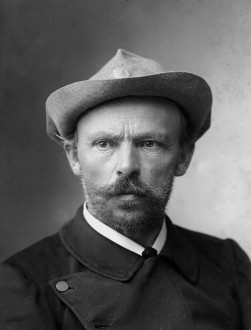Influential People
During its history, Třebíč region became a home and refuge for a number of influential people. Among them we can find war heroes, artists and pioneers. We respect their legacy and commemorate them in many places. Meet at least some of them ...
Bráf Albín, 1851–1912, professor of economics, politician, minister of ploughing
The first Czech professor of national economy at Charles University in Prague after its division into the Czech and German sections. He participated in the founding of the Regional Bank in Prague (1889) and the Czech Academy of Sciences and Arts (1890). He was a leader of the Old Bohemian Party, a member of the Chamber of Deputies, and a Minister of Ploughing (Agriculture) in 1909-1911.
Budischowsky Karl Ferdinand Leopold, 1810–1884, tanner master, prominent businessman
He founded the company ‘Carl Budischowsky and his sons‘ and gradually built a modern shoe factory in the valley of the Stařeč Creek. He was the first pioneer in mass production of shoes in Třebíč - Borovina in the second half of the 19th century. His company supplied leather products including shoes to the Austrian army, later Turkish, Mexican and Russian.
Deml Jakub, 1878–1961, catholic priest, poet, translator
One of the most significant authors of Czech literature. He wrote about 115 publications, some of them in German. He was briefly a presidential librarian in the castle of Topolčianky (1919-1920). Among other things, he brought into the Czech literature Christian enjoyment of belonging of the living and the dead. The motto of his life was the bonvivan statement "Life is more than a good reputation".
Haněl Jan Miloslav, 1808–1883, physician, patriot, politician
After studies in Prague in 1835 he settled in Třebíč as a doctor. The spread of Czech national consciousness in the town is associated with this person. He contributed to the construction of the National House on Karlovo náměstí for the needs of the burghers meeting, and thanks to Haněl’s long-term efforts, the administration of Třebíč went to Czech hands in 1882.
Kalina Antonín, 1902–1990, rescuer of imprisoned children from the Buchenwald concentration camp
During World War II, for political reasons, he was imprisoned in the Buchenwald concentration camp, where he managed to save the lives of around 1,000 Jewish children in various ways. In 2012, in memoriam, he was awarded the title Righteous Among the Nations, which identifies non-Jewish people who have contributed to saving the Jews from the Holocaust. In 2014, in memoriam, he was honoured with the Medal of Merit of the First Grade.
Krajina Vladimír Josef, 1905–1993, scientist, pedagogue, politician, participant of anti-Nazi resistance
He participated in the anti-Nazi resistance movement, was a leading figure in the domestic resistance and imprisoned by the Gestapo. After the war he was awarded the Czechoslovak War Cross. After February 1948 he emigrated to Vancouver, Canada, where he again became a university teacher. He received countless honours and awards, a foundation bearing his name was established, and in 1990 a new department was established at the University of British Columbia, called Department of Forestry and Forest Management of V. J. Krajina. He lived to see the fall of communism and to be awarded the Czechoslovak Order of the White Lion of the First Class.
Kremláček Josef, 1937–2015, academic painter, illustrator
He entered the world of Illustrators at the end of the 1960s with the illustration to Daniel Defoe’s novel, Robinson Crusoe. Over the years he became the author of a number of domestic and foreign titles. He won publishing and trade fair awards and his unmistakable distinctive style of illustrations is represented in art collections of museums and galleries in the Czech Republic, Hungary, Bulgaria, Portugal, Chile, Argentina, Belgium, France, Italy and Japan. In 2015, in memoriam, he was awarded hte Glass Medal, the Vysočina Region s highest award.
Krška Titus, 1842–1900, founder of the Czech Voluntary Fire Brigade
He founded the first Czech volunteer fire brigade with Czech command in Moravia in 1871 and became his first chief. He was the mayor of the Czech Central Fire Brigade, founder and member of the Fire Insurance Company, founder of the local Pension Fund, chairman of the Invalid Firefighting Fund of the Margraviate of Moravia, and editor and publisher of the magazine ‘Ochrana hasičská’.
Kubiš Jan, 1913–1942, hero of the anti-Nazi resistance
Sergeant Jan Kubiš was a member of the Czechoslovak Foreign Army in Great Britain. He became a hero of the anti-Nazi resistance, when as one of the Anthropoid paratroopers on May 27, 1942, he successfully assassinated the deputy Reich Protector Reinhard Heydrich. He died on June 18, 1942 as a result of bleeding after the Nazi attack on the shelter in the Orthodox Church of St. Cyril and Methodius in Resslova Street in Prague, where they hid together with other paratroopers. In 2002 he was in memoriam promoted to the rank of colonel.
Mertl František – FRANTA, *1930, painter, sculptor, graphic artist
The world-famous artist František Mertl, known under the name FRANTA, studied at the Higher School of Applied Arts in Brno and subsequently at the Academy of Fine Arts in Prague. In 1958 he emigrated from Czechoslovakia and lives in the town of Vence in southern France. In 2014, the Franta Exhibition was ceremonially opened in the National House on Karlovo náměstí in Třebíč, where a donated collection of nearly forty works from his lifelong work is placed.
Nezval Vítězslav, 1900–1958, poet, playwright, publicist, translator, screenwriter
He graduated from the Secondary Grammar School in Třebíč and expressed his relationship to the town with the words: “I’ve never finished drinking water from the wells in Třebíč.” His work is rich and extensive. In addition to poetry, it also includes plays, novels, theoretical reflections on literature, works for children. He also made several screenplays. Despite political agitation in the 1930s, and especially in the 1950s, he remains one of the greatest poets of modern Czech poetry.
Novák Ladislav, 1925–1999, poet, artist, translator
The initiator of new technical and compositional regimes managed to push his work into the world s exhibition halls.
Pokorný Leopold, 1904–1937, International Brigade volunteer, hero of the anti-fascist resistance in Spain
He fought in the Spanish Civil War, under the Slavonic flag, to suppress fascism. On April 5, 1937, in defence of Madrid, Leopold Pokorný and selected volunteers distracted the fascists attention and rescued the surrounded Allied American and Polish International Brigade battalions. Czech volunteers paid with their lives for this heroic act.
Syrový Jan, 1888–1970, Czechoslovak general, Minister of National Defence, Prime Minister
He joined the Czechoslovak Legions as a private soldier in Russia, distinguished himself at the Battle of Zborov and returned to his homeland as a celebrated general. After returning to his homeland he was in command of the Czechoslovak army, he was the Minister of National Defence and subsequently the Prime Minister. After World War II he was unjustly condemned as a collaborator.
Špalek Jan Cyrillus, 1566–1632, Czech Brethren Priest
As a senior of the Unity of Czech Brethren, on November 4, 1619, he crowned Frederick V of the Palatinate to be the Czech King in St. Vitus Cathedral in Prague. After the defeat of the Estates Uprising, he was forced to emigrate to Poland. His daughter Marie Dorota Špalková married J. A. Comenius. The first woman of A. A. Comenius, Magdaléna Vizovská, was also from Třebíč.
Zahradníček Jan, 1905–1960, poet, translator, essayist
The great poet of spiritual values based on the Catholic perception of the world. In 1951 he was arrested and sentenced to 13 years in prison in a fabricated trial. He was released in a general amnesty in 1960. He died of imprisonment effects several months after his release. The communist regime tried to condemn the name of Zahradníček to oblivion, however, the importance n of his work did not allow it. In memoriam he was awarded the Order of T. G. Masaryk.
Žďárský Matyáš, 1856–1940, ski pioneer, climber, teacher, painter
The native of the village of Kožichovice grew up in Třebíč and is considered the founder of alpine skiing technique. He is the author of the first prototype of modern binding and one of the first avalanche experts in Europe. He worked as a ski instructor in the Austro-Hungarian army and later as an avalanche expert. For merit in training in 1916, he won the Knight s Cross of the Order of Franz Joseph and in 1931 he won the Gold Badge of Merit for the Republic of Austria.
